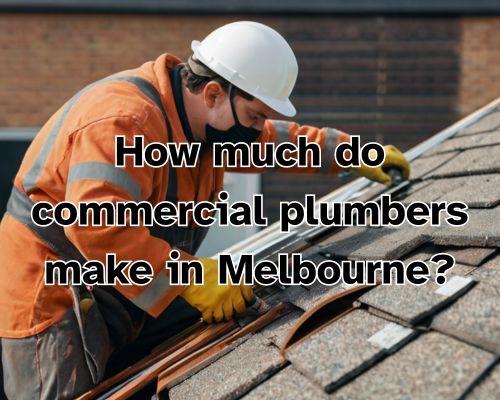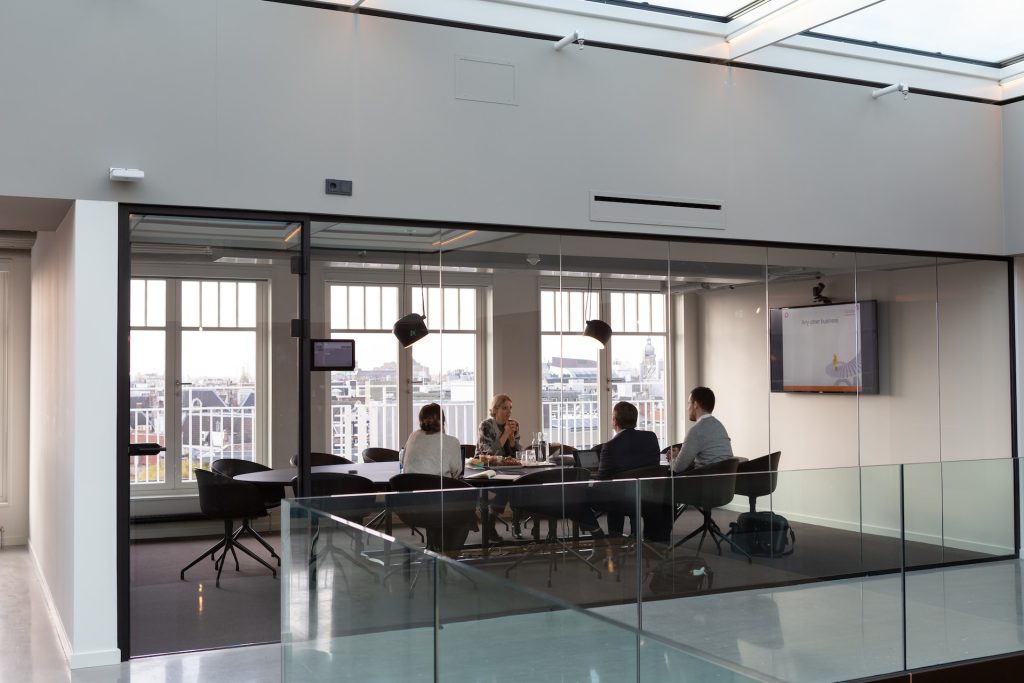
How Much Do Commercial Plumbers Make in Melbourne? A Detailed OverviewHow Much Do Commercial Plumbers Make in Melbourne? A Detailed Overview
When considering a career as a commercial plumber in Melbourne, it’s essential to understand the earning potential within this specialized field. Commercial plumbing involves larger, more complex systems than residential plumbing, including the installation and maintenance of plumbing systems for businesses, industrial facilities, and other commercial properties. With Steve Arnie of Gutter Cleaning Melbourne, we’ll explore how much commercial plumbers make in Melbourne, breaking down key factors that influence their salary and providing a clear overview of the market.

1. Average Salary for Commercial Plumbers in Melbourne
The salary of a commercial plumber in Melbourne can vary depending on a number of factors such as experience, level of certification, the company they work for, and the complexity of the projects they handle. On average, a commercial plumber in Melbourne can expect to earn between AUD 70,000 to AUD 100,000 per year. However, highly experienced or specialized plumbers can earn up to AUD 120,000 or more annually.
Entry-Level Plumbers: For those just starting out in the commercial plumbing field, salaries tend to range between AUD 50,000 and AUD 60,000 per year. These plumbers often work under the supervision of more experienced professionals and may be involved in basic tasks like pipe installation or maintenance.
Mid-Level Plumbers: A commercial plumber with a few years of experience can expect to earn between AUD 70,000 and AUD 85,000 annually. These plumbers are typically responsible for a range of tasks including installing plumbing systems, conducting inspections, and troubleshooting more complex plumbing issues.
Experienced Plumbers: A seasoned commercial plumber in Melbourne can earn upwards of AUD 100,000 per year. These plumbers often take on leadership roles, manage large projects, and may be involved in overseeing apprentices or other team members. Their expertise allows them to handle large-scale plumbing systems for commercial buildings, restaurants, hotels, and office complexes.
2. Factors Influencing Salary
Several factors impact how much a commercial plumber can make in Melbourne. These include the level of experience, education, industry demand, and specific skills. Here’s a closer look at each of these factors:
Experience: As with most professions, experience plays a significant role in determining salary. A plumber with several years of experience will likely command a higher wage than someone just entering the field.
Education and Certification: Commercial plumbers who have completed specialized training, such as a Certificate III in Plumbing and a Certificate IV in Plumbing, tend to earn higher wages. Holding additional certifications, such as those for gas fitting, can also boost a plumber’s earning potential. Furthermore, continuing education in areas like safety protocols and plumbing technology can help plumbers secure higher-paying jobs.
Industry Demand: Melbourne’s thriving construction and development industry creates a high demand for skilled commercial plumbers. With the city undergoing continuous growth, commercial plumbing services are essential for the construction of new office buildings, shopping centers, and infrastructure projects. This demand results in competitive wages for experienced plumbers.
Specialization: Plumbers who specialize in a specific area of commercial plumbing—such as gas fitting, water treatment systems, or backflow prevention—can often command a premium salary. Specialized skills are highly sought after, particularly in Melbourne, where there is an ongoing need for expert plumbing services in commercial and industrial sectors.
3. Additional Earning Opportunities
In addition to their base salary, commercial plumbers in Melbourne may have the opportunity to earn additional income through overtime, on-call work, and bonuses. Overtime pay is particularly common in the plumbing industry, especially when plumbers are required to work evenings, weekends, or during emergencies.
Overtime: Many commercial plumbers are paid at a higher rate for overtime hours, which can significantly boost their overall earnings. This is especially common on large construction projects that operate outside regular business hours.
On-Call Work: Some plumbers work as part of an on-call roster, which means they may be called out for urgent repairs at commercial properties. This type of work typically offers higher hourly rates, especially if it’s outside of standard working hours.
Bonuses and Profit Sharing: For those working in larger plumbing companies, performance-based bonuses or profit-sharing plans may be available. These incentives can increase a plumber’s total earnings, especially if they consistently complete projects on time and within budget.
4. Cost of Living and Plumbing Rates in Melbourne
It’s also important to consider the cost of living in Melbourne when evaluating potential earnings. Melbourne is one of the most expensive cities in Australia, with high costs for housing, transportation, and daily expenses. As such, plumbers in Melbourne typically receive higher wages compared to those in other cities like Sydney or Brisbane to offset these costs.
In terms of hourly rates, commercial plumbers in Melbourne typically charge between AUD 80 and AUD 120 per hour, depending on the nature of the job. For larger projects or emergency services, hourly rates can rise even higher.
5. Job Outlook and Demand for Commercial Plumbers in Melbourne
Melbourne’s ongoing development and urban expansion provide a positive job outlook for commercial plumbers. As the city continues to grow, the demand for qualified plumbing professionals is expected to remain strong. Large-scale infrastructure projects, including commercial and residential buildings, public works, and industrial facilities, will continue to require skilled plumbers to install and maintain complex plumbing systems.
The rise of environmentally sustainable construction methods also presents new opportunities for commercial plumbers. The increasing emphasis on water-saving technologies, energy-efficient plumbing systems, and eco-friendly practices creates a need for plumbers with expertise in these areas.
For more, just visit https://gutter-cleaning-melbourne.com.au/.
6. Melbourne’s Leading Plumbing Companies and Opportunities
Melbourne is home to a wide range of reputable plumbing companies that offer lucrative career opportunities for commercial plumbers. Some of the largest and most well-known plumbing firms in the city include Pipe Dreams Plumbing, Melbourne Plumbing Experts, and Local Plumbing Group. These companies offer apprenticeships, training programs, and career advancement opportunities, making them great employers for aspiring commercial plumbers.
Additionally, independent plumbers who run their own businesses in Melbourne can enjoy more control over their earning potential, though they may face additional challenges such as managing operational costs, marketing, and acquiring new clients.
7. Final Thoughts
In conclusion, the salary for commercial plumbers in Melbourne can vary widely based on experience, skills, and the complexity of the projects they handle. On average, a commercial plumber can earn between AUD 70,000 and AUD 100,000 per year, with experienced professionals commanding higher wages. The demand for skilled plumbers in Melbourne is strong, fueled by the city’s ongoing development and infrastructure growth, and the potential for additional income through overtime, on-call work, and bonuses makes the profession even more appealing.
For those considering a career in commercial plumbing in Melbourne, the future looks bright. With the right training, certifications, and experience, commercial plumbers can enjoy a rewarding career with a competitive salary, job security, and plenty of opportunities for advancement.



